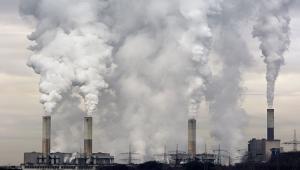In a paper titled After Paris: Fiscal, Macroeconomic and Financial Implications of Climate Change, IMF staff highlight that fiscal policies will be crucial to implementing the historic agreement between 195 world leaders signed at COP21 in Paris last December.
“Most immediate, and key, is the need to recognise and exploit the potential role of fiscal policies in implementing the mitigation pledges submitted by 186 countries in the context of the Paris agreement,” it said.
A central problem, it explained, is that while no single firm or household has a significant effect on the climate individually, collectively their effect it huge. Pricing, which forces the factoring of climate effects into individual-level decisions, must therefore have a “central role”, it said.
Carbon pricing through taxes or trading systems designed to behave like taxes should be “front and centre” – these are potentially the most effective instrument in reducing carbon emissions and have some key advantages over regulatory approaches, it added.
Not only are they more environmentally effective, promoting the entire range of mitigation opportunities in one instrument, but the revenues they could potentially earn have “obvious appeal on fiscal grounds” and create space to reduce other taxes, it said.
In developing countries that may lack the capacity to enforce regulations, energy taxes might be a relatively effective way of raising revenue from hard-to-tax enterprises. It would also establish the price signals needed to attract private money for climate finance.
Emissions and carbon pricing also has domestic benefits outside of addressing global climate change such as reducing deaths from air pollution, it noted.
The key practical issues will be choosing and designing the right fiscal policy instruments to best suit a nation’s mitigation strategy.
The choice between carbon pricing and emissions trading systems are less important than “doing either and getting the basics right”, it said. This includes covering emissions comprehensively and establishing stable prices in line with environmental objectives.
While it deemed regulatory policies “inferior”, it said where they are utilised they should conform to the same design principles.
The design of national tax, spending systems and other fiscal policies should also work to ensure economies adapt to climate change, for example by strengthening fiscal buffers.
The report also urged countries to establish fiscal policies that mobilise public and private sources of climate finance, which it said needs to be scaled up towards the $100bn that the developed world has promised to deliver to help developing countries adapt and mitigate to climate change by 2020.
The financial sector also needs to play a bigger role, it said. There should be “increased disclosure of firms’ carbon footprints, prudential requirements for the insurance sector and appropriate stress testing for climate risks to ensure financial stability during the transition to a low carbon economy”.













